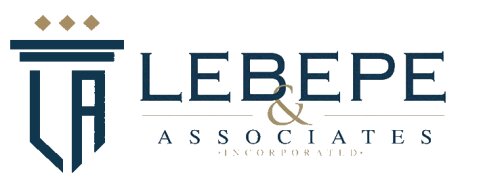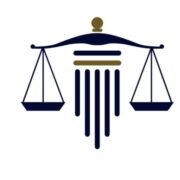Best Sanctions & Export Controls Lawyers in Polokwane
Share your needs with us, get contacted by law firms.
Free. Takes 2 min.
List of the best lawyers in Polokwane, South Africa
About Sanctions & Export Controls Law in Polokwane, South Africa
Sanctions and export controls are critical legal areas that regulate the movement of goods, technologies, and services across borders, often to uphold national security, international obligations, and foreign policy objectives. In South Africa, including Polokwane, these legal frameworks are primarily guided by national legislation and international agreements. Sanctions may prohibit trade or specific transactions with certain individuals, countries, or organisations, while export controls manage access to items that could have civilian and military uses. Understanding these rules is essential for businesses and individuals involved in import-export activities or international collaborations in Polokwane.
Why You May Need a Lawyer
Navigating sanctions and export controls can be highly complex, and non-compliance can result in severe legal and financial consequences. Here are some common scenarios where legal assistance may be vital:
- Advice on whether a particular transaction or business partner is subject to South African or international sanctions
- Helping organisations secure licences or permits for controlled exports
- Representing businesses during government investigations or audits
- Assisting in internal compliance reviews and risk assessments
- Defending clients accused of violating sanctions or export control laws
- Guidance in understanding changes to relevant laws or regulations
- Training staff on compliance requirements
Local Laws Overview
Sanctions and export controls in Polokwane operate primarily under national South African law as well as international conventions. Key legislation includes:
- The National Conventional Arms Control Act, 2002 - Regulates the trade in conventional arms and related items, including the issuance of permits and monitoring of exports.
- The Non-Proliferation of Weapons of Mass Destruction Act, 1993 - Governs the transfer and brokering of goods and technologies that could be used for nuclear, chemical, or biological weapons.
- Customs and Excise Act, 1964 - Provides procedures and requirements for imports and exports, including goods classification and duties.
- United Nations Security Council Resolutions - South Africa, including businesses in Polokwane, is obliged to apply UN-mandated sanctions.
Local authorities, such as the South African Revenue Service (SARS), closely monitor compliance, and violations can result in fines, imprisonment, and reputational harm. Ignorance of the law is not generally accepted as a defence.
Frequently Asked Questions
What are sanctions in the context of South African law?
Sanctions are legal measures that restrict or prohibit transactions with certain countries, individuals, or organisations. These measures may include trade embargoes, asset freezes or travel bans, often based on South Africa's international obligations.
How do export controls affect businesses in Polokwane?
Export controls regulate the transfer of specific goods, technologies, and software out of South Africa, particularly those that could have military or dual uses. Businesses must ensure they have obtained the proper permits or licences before exporting controlled items.
Which authorities enforce sanctions and export controls in South Africa?
Primary enforcement agencies include the Department of Trade, Industry and Competition, the National Conventional Arms Control Committee (NCACC), the Department of International Relations and Cooperation, and SARS for customs compliance.
Can I export freely to any country from Polokwane?
No, exports are subject to both national and international controls. Certain countries may be subject to embargoes or trade restrictions, requiring special permits or prohibiting exports entirely.
What penalties exist for violating sanctions or export controls?
Penalties may include hefty fines, confiscation of goods, loss of export privileges, and in serious cases, criminal prosecution leading to imprisonment.
Do individuals need to comply with export and sanctions laws or just companies?
Both individuals and companies must comply. Anyone involved in the export, re-export, or financing of controlled items must adhere to applicable laws.
How can I determine if a product is controlled?
Goods are listed in published control lists, often requiring technical review. A qualified legal professional can help interpret these lists and determine eligibility for export.
Is legal consultation necessary for every export?
While not always mandatory, legal consultation is highly advised for new, unusual, or high-risk transactions-especially where there is uncertainty about sanctions or export controls.
Are there any exceptions for humanitarian exports?
Some sanctions regimes allow humanitarian exceptions, but these often require a permit and come with specific conditions. Expert legal advice is recommended to navigate these provisions.
What should I do if I think I have violated export control laws?
Contact a knowledgeable lawyer immediately. Legal counsel can help assess the situation, consider voluntary disclosure, and manage communications with authorities.
Additional Resources
If you require further information or support, consider the following resources:
- South African Revenue Service (SARS) - Provides information on customs procedures and export requirements
- Department of Trade, Industry and Competition (the dtic) - Issues permits and guidance on export controls
- National Conventional Arms Control Committee (NCACC) - Oversees arms control and related exports
- Department of International Relations and Cooperation (DIRCO) - Administers foreign policy, including sanctions
- Law Society of South Africa - Helps locate qualified legal practitioners in your area
Next Steps
If you find yourself needing legal guidance in the area of sanctions and export controls in Polokwane, it is important to:
- Gather all relevant documents and information about your transactions or intended exports
- Consult with a lawyer who specialises in trade, customs, and sanctions law as soon as possible
- Follow the lawyer’s advice closely to ensure compliance and avoid further complications
- Stay updated on changes in regulations by subscribing to government bulletins or legal updates
- If subject to an investigation or audit, cooperate with authorities but ensure you are represented by a qualified legal professional throughout the process
Being proactive and seeking timely legal advice can help you protect your interests and operate confidently within the boundaries of sanctions and export control laws in Polokwane, South Africa.
Lawzana helps you find the best lawyers and law firms in Polokwane through a curated and pre-screened list of qualified legal professionals. Our platform offers rankings and detailed profiles of attorneys and law firms, allowing you to compare based on practice areas, including Sanctions & Export Controls, experience, and client feedback.
Each profile includes a description of the firm's areas of practice, client reviews, team members and partners, year of establishment, spoken languages, office locations, contact information, social media presence, and any published articles or resources. Most firms on our platform speak English and are experienced in both local and international legal matters.
Get a quote from top-rated law firms in Polokwane, South Africa — quickly, securely, and without unnecessary hassle.
Disclaimer:
The information provided on this page is for general informational purposes only and does not constitute legal advice. While we strive to ensure the accuracy and relevance of the content, legal information may change over time, and interpretations of the law can vary. You should always consult with a qualified legal professional for advice specific to your situation.
We disclaim all liability for actions taken or not taken based on the content of this page. If you believe any information is incorrect or outdated, please contact us, and we will review and update it where appropriate.













